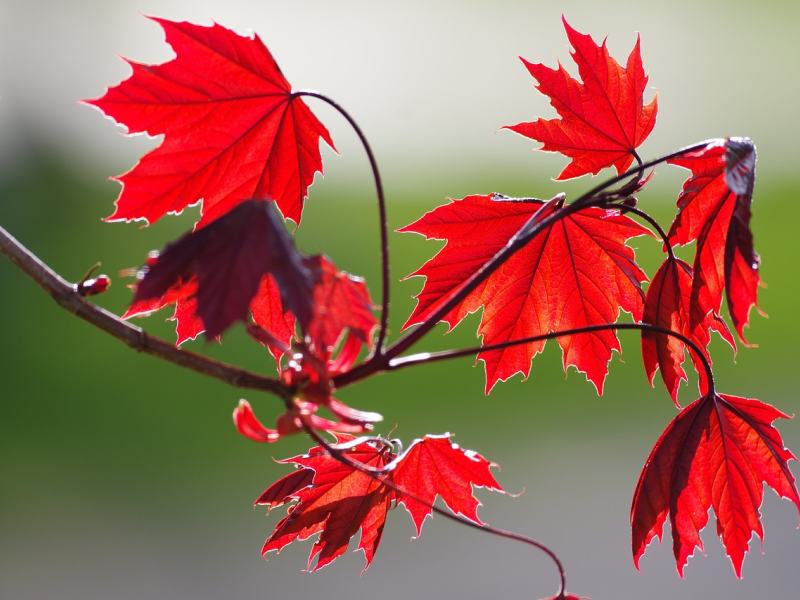Table of Contents

Maple sap is no longer just the superstar precursor to maple syrup; it’s gaining attention as a health powerhouse in its purest form. Historically tapped as a springtime tonic by Indigenous peoples and early settlers, this naturally sweet liquid is undergoing a modern-day renaissance among health enthusiasts, nature lovers, and foodies alike.
But what makes this humble, tree-derived drink so special? From its impressive nutritional makeup to its diverse health benefits, maple sap is earning a place as a must-try beverage that’s both sustainable and delicious.
Dive into the wonderful world of maple sap, where ancient tradition meets modern wellness insights.
Before we get into its benefits, let's look at what makes maple sap so nutritionally compelling.
Maple sap is naturally low in sugar compared to maple syrup and contains an impressive array of essential nutrients like minerals and vitamins. Here’s a closer look at its nutritional breakdown and why it stands out compared to popular beverages such as coconut water or sports drinks.
Unlike sugar-laden soft drinks, maple sap has a delicate sweetness, thanks to naturally occurring sugars. Its lower sugar content (~2% as compared to processed maple syrup's 66%) makes it an excellent choice for clean hydration.
Loaded with potassium, magnesium, calcium, and manganese, maple sap provides key electrolytes that support muscle function and hydration. Think of it as coconut water’s cooler, earthier cousin.
Maple sap is rich in polyphenols, which help combat oxidative stress in the body. Early research from the Maple Syrup Research Center highlights its antioxidant strength as comparable to green tea.
Maple sap offers comparable hydration benefits but with a subtler taste and fewer calories.
While sports drinks are often loaded with artificial colors and sugars, maple sap provides similar electrolytes with none of the unnecessary additives.
With its unique nutrient profile, maple sap delivers a host of health benefits. Whether you’re boosting your immune system or adding antioxidants to your diet, this natural beverage covers a lot of bases.
Maple sap’s naturally occurring zinc and manganese are crucial for supporting immunity. Zinc helps fortify the immune system and aids in wound healing, while manganese plays a role in enzymatic defenses within the body.
“Drinking maple sap during seasonal transitions, like spring, is a traditional practice that has real scientific backing,” says Dr. Mira Patel, a nutritionist at Harvard Health. “The minerals it contains promote overall wellbeing and immune resilience.”
Thanks to its calcium and magnesium content, maple sap can help support bone strength. Regular consumption (as part of a balanced diet) may aid in maintaining dense, healthy bones, especially beneficial for women at risk for osteoporosis.
Dana, a yoga instructor, swears by her daily glass of maple sap. “Since I started drinking maple sap, I feel great. My nails are stronger, and I’ve noticed fewer joint aches during my sessions.”
The antioxidants found in maple sap neutralize free radicals, which are responsible for aging and cellular damage. Polyphenols specifically have been shown to reduce inflammation, playing a role in heart health and recovery after workouts.
A study conducted by the National Institutes of Health found that incorporating antioxidant-rich drinks like maple sap into diets can reduce the effects of oxidative stress significantly.
Beyond drinking it straight from the glass, maple sap shines for its culinary versatility. From traditional recipes to trendy new uses, this elixir offers endless possibilities.
Warm maple sap with a slice of lemon and a cinnamon stick for a soothing beverage.
Use maple sap to sweeten coffee, teas, or even oatmeal without the need for processed sugar.
Maple Sap Smoothie:
Instructions
Blend all ingredients until smooth for an antioxidant-packed breakfast.
Maple Sap Glaze
Drizzle this reduced liquid gold over roasted vegetables or salmon for a touch of sweetness.
Maple sap doesn’t just work wonders for your health—it’s also a champion for the planet.
Tapping maple trees for sap is a low-impact practice that doesn’t harm the tree. Unlike agricultural crops, trees continue to live and grow, fostering biodiversity in the forests they thrive in. By purchasing maple sap from ethical producers, you help support these sustainable practices.
“Every glass of sap represents not just nutrition but also a win for forest preservation,” says Mark Thompson, an environmental scientist. “The demand for maple sap encourages the conservation of tree-rich ecosystems.”
Look for local producers who prioritize ethical harvesting practices and support their communities. Knowing where your food comes from isn’t just trendy—it’s essential for sustainable consumption.
Maple sap isn’t just a drink; it’s a lifestyle choice rooted in tradition, nutrition, and environmental harmony. Whether you’re experimenting with new drink recipes, powering your next workout, or fostering a sustainable pantry, this ancient beverage deserves a spot in your routine.
Have you tried maple sap? Share your favorite recipes or experiences with us in the comments below. Looking for more inspiration? Explore our related post: “10 Easy Ways to Use Maple Syrup in Everyday Cooking”.
Here's to your health—and to every delicious sip!